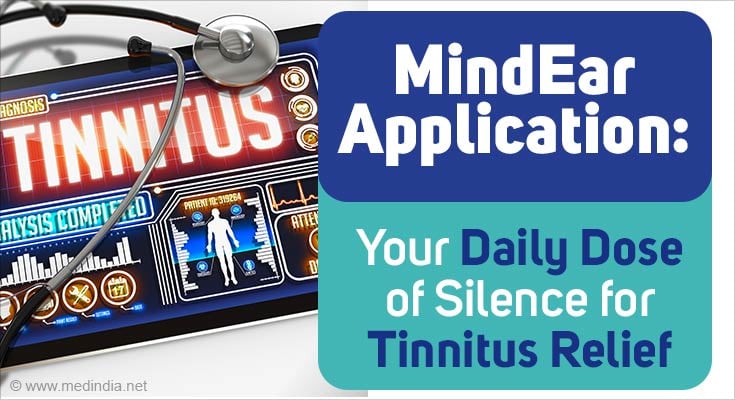-
MindEar’s chatbot therapy app eases tinnitus distress and associated anxiety - 64% improvement in just 8 weeks, showcasing its rapid and effective impact
- Cognitive Behavioral Therapy via MindEar proves to be a game-changer for tinnitus management
A recent study reveals that the severity and impact of tinnitus can be significantly reduced by a brain-training app. This smartphone application utilizes a chatbot to deliver cognitive behavioral therapy (CBT), effectively alleviating the distress associated with tinnitus, along with the accompanying anxiety and depression.
Tinnitus, characterized by the conscious perception of sound without an external source, adversely affects sleep, cognition, communication, and one’s sense of control. Approximately two-thirds of tinnitus sufferers experience clinical depression, and 10% report a notable decline in their quality of life.
While managing this incurable condition poses challenges,
Tinnitus: A Condition with No Solution
The lead author, Fabrice Bardy, emphasized that there is no solution for tinnitus but it can be countered by professional help from experts in tinnitus support (1✔ ✔Trusted Source
Why Is There No Cure for Tinnitus?
).
Advertisement
The study involved 28 adults with tinnitus, divided into two groups: one receiving internet-based CBT (iCBT) alone and the other receiving iCBT along with video calls with a clinical psychologist (hybrid group). The iCBT was delivered through the MindEar app, developed by a multidisciplinary team.
Participants engaged with the MindEar app for 10 minutes daily over eight weeks, with the hybrid group additionally having four video calls during this period. The primary outcome measure was the Tinnitus Functional Index (TFI), a self-report questionnaire assessing the severity and negative impacts of tinnitus. Both groups demonstrated a significant decrease in TFI scores over time, with 42% of the MindEar-only group and 64% of the hybrid group showing clinically significant improvement post-treatment. At a 16-week follow-up, both groups maintained a 64% improvement.
Benefits of MindEar Application
The most significant improvements were observed in the relaxation, emotional, sense of control, and sleep TFI sub-scales. Anxiety and depression symptoms also notably decreased. The study indicated that the addition of online counseling sessions might enhance the treatment’s effectiveness, though both groups achieved a clinically significant reduction in tinnitus severity. Further research is required to explore potential correlations between patient characteristics and the success of different therapy delivery modes.
Clinically proven and user-approved, MindEar stands as a beacon of hope, silencing the discordant symphony of tinnitus.
Reference:
- Why Is There No Cure for Tinnitus? – (https://pubmed.ncbi.nlm.nih.gov/31447630/)
Advertisement



